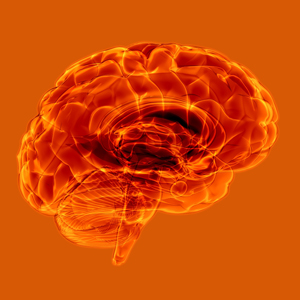 Anti-diabetes treatments may protect the brain in people with diabetes but might also be repurposed to treat cognitive disturbance in people without diabetes.
Anti-diabetes treatments may protect the brain in people with diabetes but might also be repurposed to treat cognitive disturbance in people without diabetes.
Professor Roger McIntyre, Professor of Psychiatry and Pharmacology at the University of Toronto, says that cognitive deficits seen especially in type 2 diabetes map very neatly against mental health disorders such as bipolar.
He told the 2018 ADA Scientific Sessions that diabetes and mood disorders were common, life-long and progressive conditions, which were ‘certainly marching in the same direction’.
“We have come to learn that diabetes does metastasise to the brain and we know there is a bidirectional relationship between the brain and diabetes,” he said.
“The psychopathology we are now seeing in people with diabetes is similar to what we see in psychiatric illness.”
He said he was not necessarily talking about diagnosable mental health disorders but early manifestations of deficits particularly in the cognition and reward domains of psychopathology.
“From a patient-reported outcomes or patient-centered perspective, these are where people with a mental disorder voice their concerns loudest, and increasingly people with diabetes.”
“We know that people with diabetes have profound disturbances in motivation and reward, and this translates into discordance with treatment recommendations and also significant disturbances in sleep.”
Professor McIntyre said it also helped explain why people with diabetes report decreased workplace attendance and performance.
A large workplace-based study found people with type 2 diabetes or prediabetes were more likely to report absenteeism and presenteeism.
“We tried to unravel what was the mechanism mediating their absenteeism and presenteesim, and indeed it was cognitive impairment. This is exactly what we see in psychiatry when we try to disambiguate the contribution of various mediators of pathology – cognition is what is driving health outcomes in individuals who have mental health disorders.”
He said insulin and other peptides play a critical role – independent of the effect on glucose – in the reward function and neurobiology of the brain, especially the ventral tegemental area (VTA).
For example, it has been shown that intranasal insulin and liraglutide can improve neurocognitive deficits in people with bipolar disorder and other mood disorders.
“There is no doubt that altering glucose levels may be one mechanism but I suspect there are going to be multiple mechanisms at play here.”
“So we’ve been working in silos, we always do in medicine, but what’s abundantly clear to us is that many of these diabetes drugs are not only brain penetrants but they are targeting the sweet zone that we are trying to target with psychiatric drugs and that effect is independent of glucose.”
He added that DPP-4 or SGLT-2 inhibitors could also reduce cognitive deficits in experimental animals exposed to high fat diets.
There is also growing evidence that sirtuins may have a mechanistic role in both mood and metabolic disorders and a potential application in psychiatry.